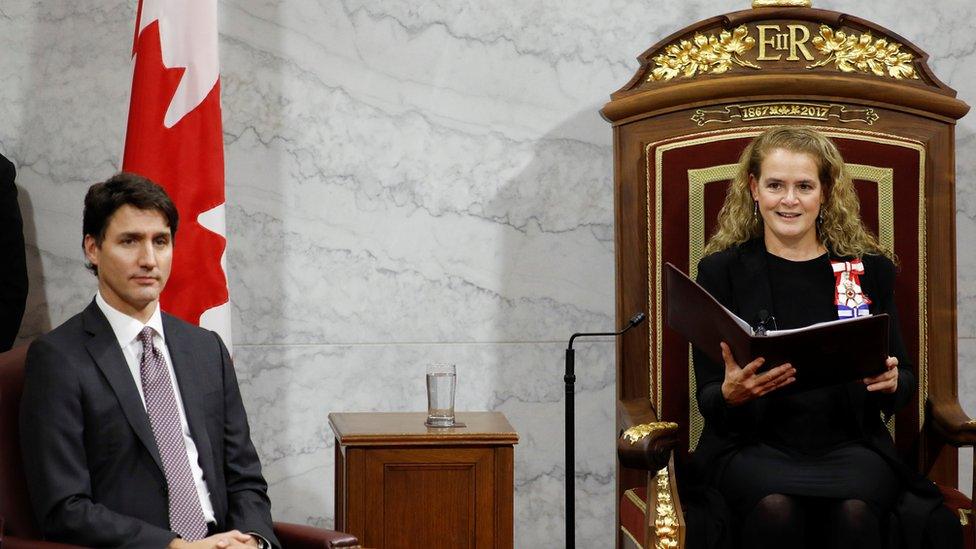Trudeau Throne speech: Here is what to expect
- Published
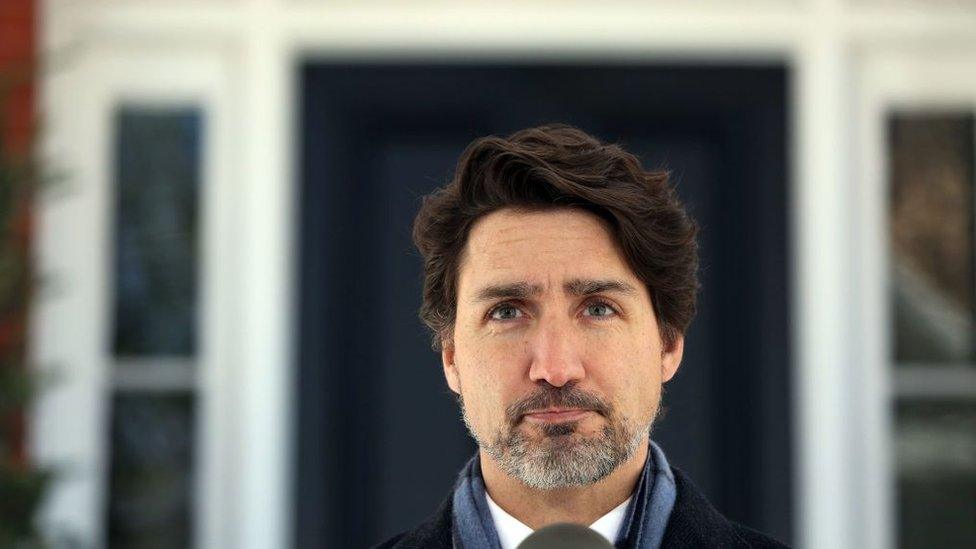
Canadian PM Justin Trudeau will unveil his agenda for Canada's pandemic recovery
As Canada's parliament returns and Prime Minister Justin Trudeau seeks to put an ethics scandal behind him, his government will on Wednesday unveil its plans for the country's pandemic response and recovery.
The last time Mr Trudeau's government held a Throne Speech - where a government outlines its policies and programmes as a parliamentary session begins - was less than a year ago.
That was before the global coronavirus pandemic upended the economy and the lives of many Canadians.
The prime minister also found himself bogged down over the summer by a charity ethics scandal that ended up costing his finance minister his job.
In August, he made a controversial decision to prorogue - or suspend - parliament and return on 23 September with a new Throne Speech to address the realities of the pandemic.
As parliamentarians head back to Ottawa, Mr Trudeau's government faces chatter of a possible election, a new opposition leader who will be seeking to make his mark, and a rise in Covid-19 cases in parts of the country.
Here's what to expect.
'Ambitious and bold'
The Liberal government is expected to announce plans to tackle both the immediate crisis - a new surge in Covid-19 cases as the country enters the colder months - and a roadmap for a longer term recovery.
Mr Trudeau has said he sees this moment as an opportunity to "build back better" because a "window of opportunity won't be open for long".
He has also said that, beyond the future challenges, dealing with a pandemic is "job one".
What might all that look like?
Mr Trudeau said that recovery means a greener, healthier and more competitive Canada.
More specifically, Reuters reports that the immediate to-do list will include investments in childcare, an expanded employment insurance programme, and funds for long-term care homes, which were particularly hard-hit early in the pandemic.
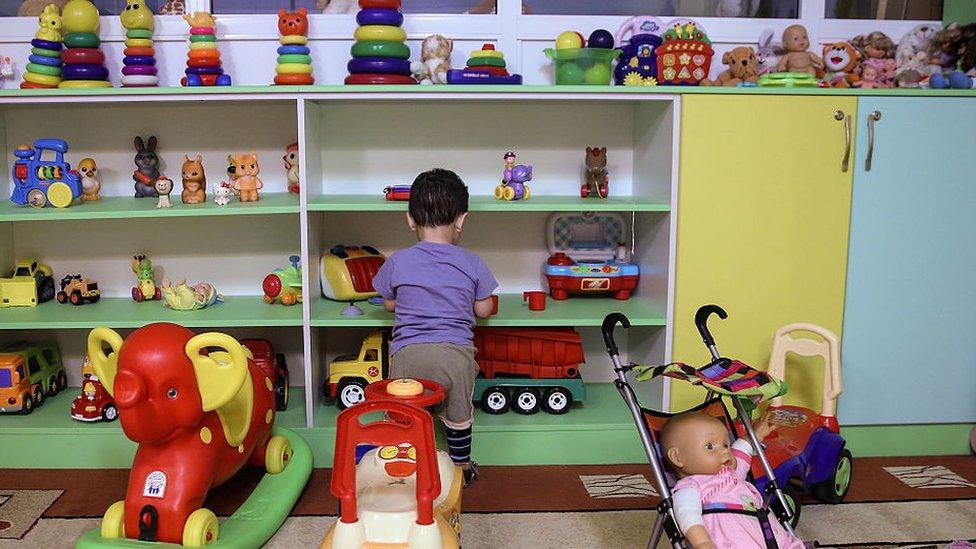
Childcare options are being viewed as increasingly important in helping the economic recovery
The prime minister has been getting spending wish lists from provincial premiers, whose demands include increased federal funding for healthcare.
Others are also seeking continued help amid the pandemic.
A group of 1,200 restaurants, fearing mass closures, are asking for wage subsidies to be extended into 2021, for long-term rent relief, and for politicians to find ways to encourage Canadians to visit restaurants.
Election talk and a new opposition
The Throne Speech has led to plenty of speculation about Canadians heading to the polls this autumn.
The speech will prompt a confidence vote in the House of Commons - a key test of whether a sitting government has the "confidence" of the majority.
A government must maintain the confidence of the House of Commons in order to continue to govern.
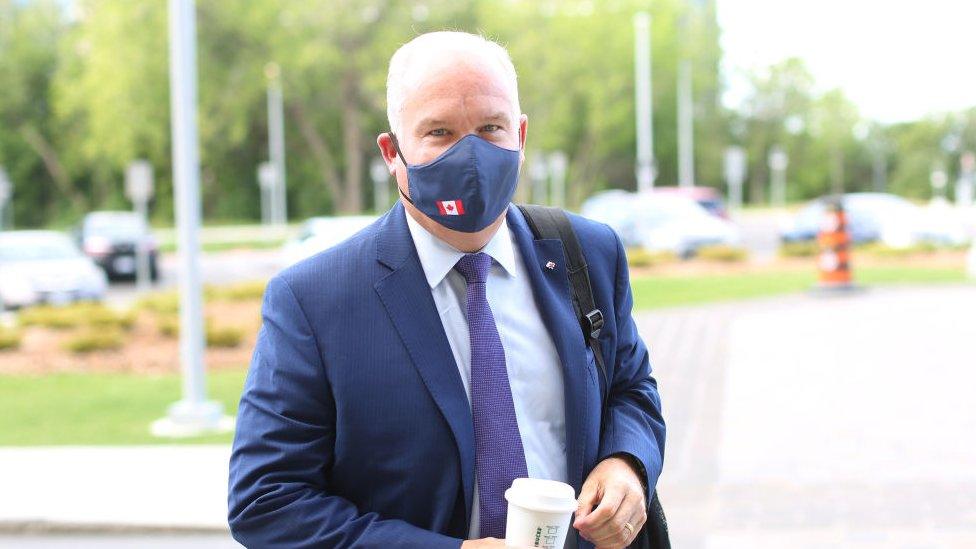
Justin Trudeau will face a new leader of the opposition this session, Conservative Erin O'Toole
Mr Trudeau's Liberals were re-elected last year with a minority, and it will need the support of at least one other federal political party to avoid the possibility of triggering a snap election.
Last week, the prime minister consulted with opposition party leaders over the speech.
The Conservatives - who recently elected a new leader, Erin O'Toole - say they will be pushing for increased Covid-19 testing across Canada and for support for small business.
The NDP - seen as the party most likely to support the Liberals - is seeking more funding for long-term care homes, the creation of a pharmacare programme, and universal childcare.
The party will also pressure the government not to sunset the Canada Emergency Response Benefit (cerb), which has been Canada's main financial support programme for workers affected by the coronavirus lockdown. Cerb is due to be replaced 27 September with an expanded employment benefits programme.
While NDP leader Jagmeet Singh said he is "absolutely prepared to fight an election" he added that "it is not my goal" to do so.
If the Liberals survive the confidence vote, they will still face questions over the WE Charity scandal.
Opposition parties will be turning the heat back up on the controversy after the suspension of parliament ended House committee investigations into the affair.
Mr Trudeau is facing his third ethics probe over a now scrapped programme for students hard hit by the economic slump. The contract to administer the multimillion-dollar programme was given to the WE Charity, which had ties to Mr Trudeau and his family.
Socially distanced Throne Speech
Neither Conservative party leader Mr O'Toole or Bloc Quebecois leader Yves-Francois Blanchet will attend the speech. Both announced on Friday they had tested positive for Covid-19, and while they are said to be feeling well, they remain in isolation.
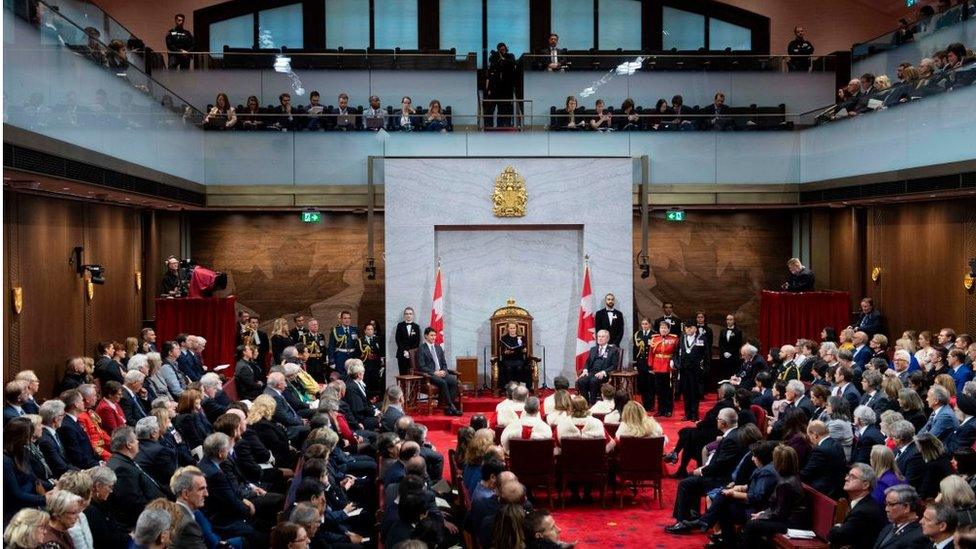
The 2020 Throne Speech will look a lot different from the last one, in December 2019, with social distancing in place
As per protocol, the speech will be read by Governor General Julie Payette in the Senate chamber.
Traditionally the speech includes plenty of pomp and ceremony and is attended by senators, members of parliament, Supreme Court justices and various dignitaries.
This time numbers will be restricted, according to senate officials, and most parliamentarians are being asked to view the speech off-site.
Those whose presence is required - including Mr Trudeau, Governor General Payette, and the speakers of the Senate and House of Commons - will be required to wear a mask and to maintain social distancing.
Mr Trudeau is also expected to address the nation in a televised broadcast on Wednesday evening following the speech.
Deficits, debt and the pandemic
Canada is in a dire economic situation due to the pandemic and is facing a potentially lengthy recession.
The price tag for pandemic aid will only rise in the foreseeable future.
Over 143,600 Canadians have been infected since January. There have been over 9,200 deaths.
Public health officials warned on Tuesday that the national daily count of positive cases is increasing "at an accelerated rate", which they called a "concerning" trend.
Earlier this year, Canada projected its largest budget deficit since World War Two - C$343bn, with more than C$212bn in direct Covid-19 support.
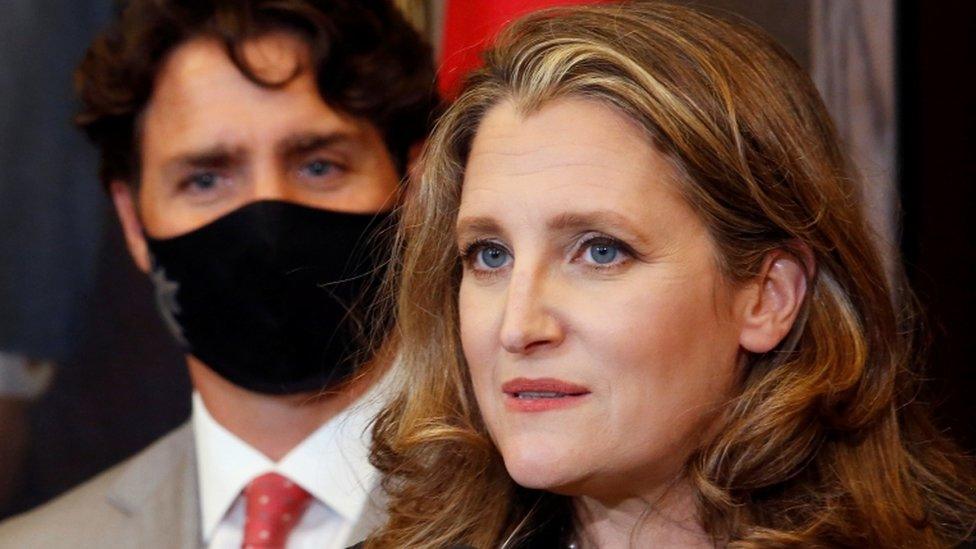
New federal Finance Minister Chrystia Freeland is facing warnings to have a plan for growing deficits
Economists and political analysts are expecting Mr Trudeau's agenda to include major new promises with some big price tags - and some are ringing warning bells about the ballooning national debt and deficit.
Fitch Ratings - an international credit rating agency - and Canada's largest banks have recently issued warnings about the budgetary red ink.
The federal government has yet to table a budget this year, after the fiscal update was postponed in March.
Polls indicate an appetite among Canadians for a post-Covid recovery agenda that addresses economic and social inequities that have been highlighted by the pandemic.
But they also suggest the top priority for many is getting control of the pandemic and getting Canadians back to work.
- Published18 August 2020
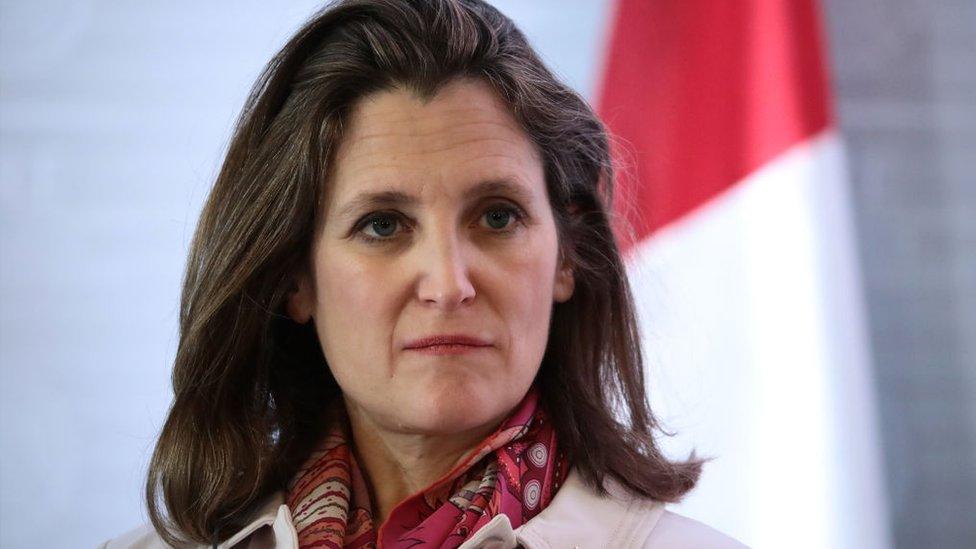
- Published9 September 2020
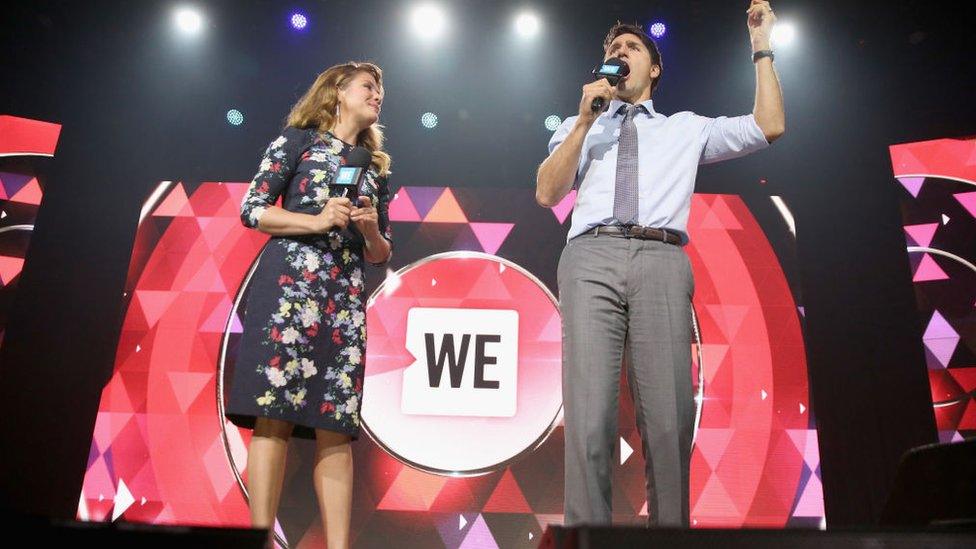
- Published24 August 2020
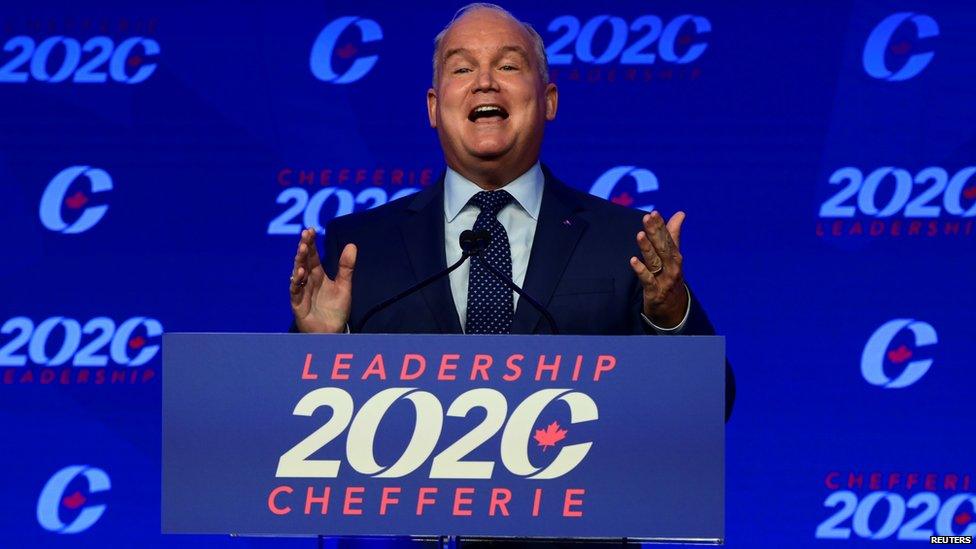
- Published18 August 2020
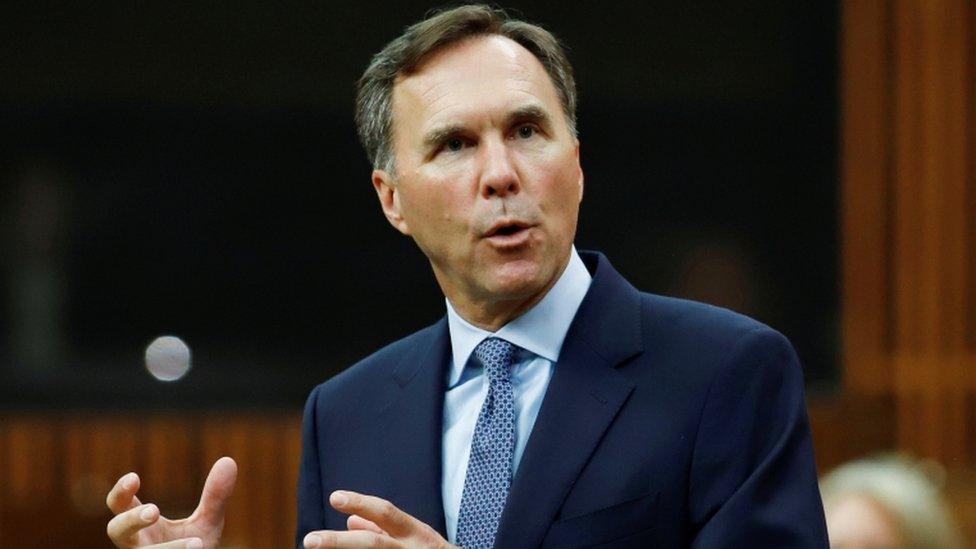
- Published5 December 2019
